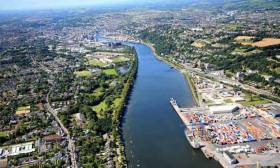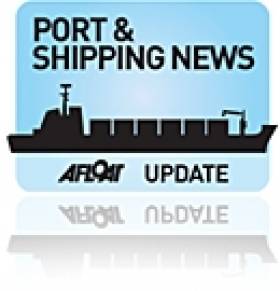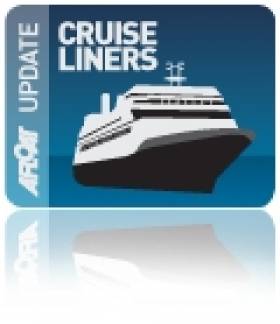Displaying items by tag: Cork Port
Cork – A River Port to a Sea Port
In an exclusive interview for my weekly This Island Nation podcast, the Chairman of Cork Port says that it is moving “from a city port to a sea port.”
Listen to John Mullins as he outlines why the port company “must leave a legacy behind to Cork City as it moves its operations downriver to Ringaskiddy and must create new relationships with all of the harbour communities.”
He spoke to me at the announcement of the Cork Harbour Festival, which will run from June 3 to June 11.
Listen to the podcast below where he also speaks about plans for Marino Point and reveals what is proposed for the development of the iconic, historic harbour offices and buildings on Custom House Quay in Cork City centre and the marina attached to it.
Ports Host UNCTAD’s Train-for-Trade Port Training Programme
The Port Training Programme is comprised of a "Modern Port Management" course and a final dissertation. During this training of trainer's workshop, the senior managers will be trained as local instructors on Modules 1-4 of the "Modern Port Management" course.
On completion of the workshop which ends today, they will serve as local instructors for their respective ports, collaborating with UNCTAD specialists and transferring their acquired knowledge to the participants of the TFT Port Training Programme.
UNCTAD stands for the United Nations Conference on Trade and Development which was launched in 1998. The new Train-For-Trade programme strengthens national and regional human and institutional resources for trade and investment as a key to growth for UNCTAD member countries, particularly the least developed ones (LDCs).
Costa 'Del' Cork
To get a better understanding of the extensive facilities available on board for the 2,826 passengers, why not have a gawk using the Multi-Media Centre page by clicking HERE (noting when done then click 'Pictures and Movies'). From here you can enter the world of life-on board (with video presentations by scrolling down) for the aromatic thermal baths, the shops gallery, the Japanese tea room, Cinema Etoiles, the Samsara Spa or have a look of an ocean view category cabin.
Of the 1,130 cabins in total, 52 have direct access to the Samsara Spa, 662 with private balcony, 106 suites with private balcony and 4 suites also have direct access to the Samsara Spa. To read more about the ship which also features a thalassotherapy, treatment rooms, sauna, turkish bath and an UVA-ray solarium click HERE.































































